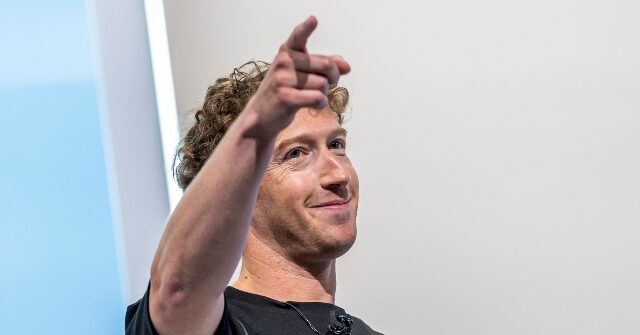In a surprising turn of events, Mark Zuckerberg’s Meta has made a notable $1 million donation to President-elect Donald Trump’s 2024 inaugural fund, signaling a significant shift in the dynamic between the tech giant and the incoming administration. This relationship has historically been fraught, especially following Trump’s prior criticisms aimed at Zuckerberg, whom he derisively referred to as “Zuckerschmuck.” Throughout a contentious election cycle, Trump positioned Zuckerberg and his platforms, Facebook in particular, as antagonistic forces against his campaign. Despite these past tensions, the donation reflects an attempt by Zuckerberg to reshape ties and acknowledges the increasingly complex balance tech executives must maintain amid ongoing political scrutiny.
The revelation of Zuckerberg’s financial support emerges not only from a need to mend relations but also from broader political considerations influenced by the changing balance of power in Washington. With Republicans regaining control of the White House and both houses of Congress, tech industry leaders face mounting pressure from a political landscape that has often portrayed them as villains. Executives are adjusting their strategies in the light of regulatory scrutiny and a potentially hostile environment from a Trump-led administration that previously targeted technology firms for antitrust inquiries and censorship allegations. This context adds depth to Zuckerberg’s decision, as he aims to solidify a working partnership with the new government.
Zuckerberg’s proactive approach to establishing rapport with Trump included a notable dinner in November at Trump’s Mar-a-Lago estate in Florida, where discussions were held around forging a closer relationship. The occasion served as the culmination of several days of meetings involving Zuckerberg’s advisors and figures associated with the upcoming administration. Moreover, Zuckerberg personally showcased Meta’s Ray-Ban smart glasses to Trump, further signaling his interest in engaging with the incoming president on a personal level. With Trump’s renewed cordiality towards Zuckerberg, expressed through his remarks about preferring Zuckerberg “much better now,” both parties seem inclined to move past prior hostilities, potentially reshaping future interactions.
The strategic partnership looks to expand as Meta aims to position itself favorably within the emerging political landscape. Nick Clegg, Meta’s head of global affairs, indicated the firm’s intent for Zuckerberg to play an influential role in discourses shaping technology policy, particularly regarding issues like artificial intelligence. As the administration gears up to address issues related to tech innovation and leadership globally, Zuckerberg’s ambition to be an active participant in these discussions signals Meta’s desire to maintain an influential presence within policy-making circles. This acknowledgment of tech’s pivotal role demonstrates a maturity in the approach from both the tech sector and the political ecosystem.
Despite the warming relations between Zuckerberg and Trump, potential challenges loom on the horizon, particularly as Trump has chosen nominees for key positions who are likely to maintain a skeptical view of Big Tech. The nomination of Andrew Ferguson to the Federal Trade Commission (FTC), which oversees antitrust matters concerning companies like Meta, indicates a predilection for stricter regulation against tech giants accused of silencing conservative voices. Ferguson’s expressed determination to counter perceived biases and promote free speech presents a possible confrontation between the Trump administration and Meta. This tension illustrates the complexities of navigating political allegiances while ensuring corporate interests remain protected amidst regulatory scrutiny.
As the landscape continues to evolve, the interaction between tech executives like Zuckerberg and political offices reflects a broader narrative around influence, power, and the role of technology in society. Currently, Zuckerberg appears willing to adapt and collaborate, understanding the necessity to align Meta strategically with key government policies. This intricate dance of relations, networking, and mutual interests may ultimately dictate the future course of tech regulation and innovation, raising questions about the balance of power in shaping America’s technological future. The ongoing developments will prove crucial in determining whether Zuckerberg’s overtures are enough to foster a cooperative, rather than confrontational, relationship with the Trump administration, as both sides navigate the choppy waters of politics and entrepreneurship.

